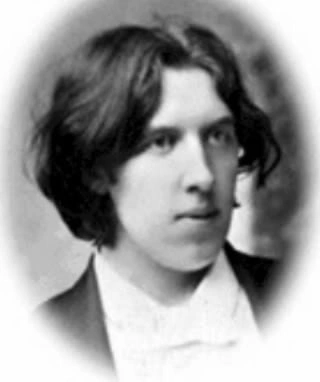“Lady Windermere’s fan” is a four act comedy written by Oscar Wilde in 1892. But why “Lady Windermere’s fan”? Why did Oscar Wilde choose this name for his play? Because that’s the Lord Windermere’s present for his wife, you will answer me. But why he gave her a fan and not jewelry or a picture? I think that’s more than just a present. I think Oscar Wilde has chosen this object “the fan” with a purpose. The fan is a symbol, it represents more than just a simple object, has a deeper meaning in this comedy and the author wanted to transmit us more than what is obvious.
First of all, we must see what the fan represents. It has several meanings in world culture that we will present, in relation to activities undertaken in the comedy.
In Japanese culture, fans are very important; the fan itself is symbolic, with the small end representing birth and the blades symbolizing the many possible paths leading away from this beginning. In the play, the fan given by lady Windermere’s husband in the first act can represent the birth of a new situation, of a new story in their relation when Margaret has to make choices. The apparition of the fan prepares Margaret to find out the possibility of being cheated and from that point, she must take a decision: to remain with the husband who probably cheated her, living in humility or to go with the one who gives her his life and his love, leaving her husband and her child. The fan appears again in the end of the comedy, when the character has already decided what path she will follow and the fan is now offered to other person, with other beginning: Mrs. Erlynne who will marry Lord Augustus and will start a new life, a spiritual birth.
Other meaning is in Chinese culture, the Chinese calligraphy character for the word "fan" has the same sound as the character for "kindness" or "good." Thus, fans are viewed as good luck charms and expressions of generosity. In the first act, Lord Windermere offers this present to his wife for her birthday as a sign of kindness, a sign of his love. In the four act, the same fan is given with appreciation and gratitude by daughter to her mother, which received it with love.
Also, in the past, Chinese fans were used to signify a high social status. Lord Windermere is presented like a rich man. He gives that object to Lady Windermere in order to show her high social status. The fan is also personalized, it contains the christian name of Lady Windermere. Mrs. Erlynne, who came to Lord Windermere for money and to enter in the high society, with Lady Windermere’s help, receive in the end of the play, once with the fan, the acceptance in the high society.
The fan can be also used to protect or as a weapon. At the end of the first act, Lady Windermere threatens her husband that she will strike Mrs. Erlynne across the face with the fan, if she comes at her birthday ball.
A very important moment is in the third act, when the protagonist, in the house of Lord Darlington, forgets the fan on the table. The fan is seen by Cecil Graham and he associates it immediately with a woman. The fan represents here the symbol of the woman. Here, the fan represents even other symbol, the symbol of the ritual sacrifice from the Hindus iconography. When it is seen by Lord Windermere and recognized, Mrs. Erlynne, Margaret’s mother, in order to prevent a scandal for her daughter, she says that she took it from Lady Windermere, even she is put into a compromising situation.
The word „fan”is used 29 times by Oscar Wilde in the comedy, which is quite a big number.
Even it is used as a weapon, for high status, to express kindness or a birth and the many possible paths, it is more than clear than Oscar Wilde has used the fan as a symbol.


